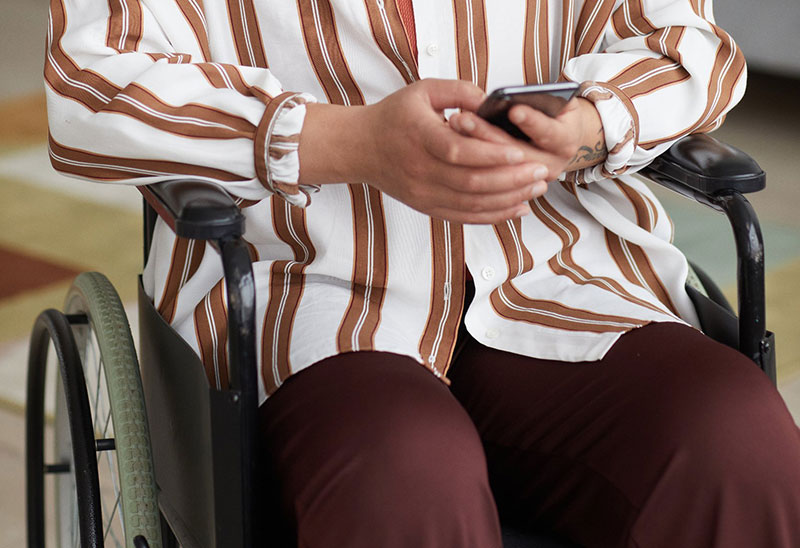All women are at risk for breast cancer and need to be aware of early detection methods and treatment for breast cancer. Women living with a physical disability (limbs, skeletal, vision, etc.) may face challenges that make it hard to do a breast self-exam and/or get a mammogram.
It is recommended that all women perform a Breast Self-Exam (BSE), have an annual Clinical Breast Exam (CBE) by their healthcare provider and begin annual mammograms when appropriate.
Practicing BSE may be difficult if you have limited arm and hand movement, or limited sensation in your fingers. You may need someone to help you examine your breasts. Make sure it is someone with whom you feel safe and comfortable. Ask this person to describe what they are noticing as they go through the process and to write it down so you can share this information with your healthcare provider at your next clinical exam.
Women with physical disabilities face multiple barriers to access, detection and diagnosis that may result in delayed treatment and increased risk of poorer outcomes from breast cancer. Providers require education about working with women with disabilities. Women must find a mammography center that really is accessible and user-friendly.
Getting Screened: Tips for Women with Disabilities
If you are a woman living with a disability, you may face challenges that make it hard to get a mammogram. Here are some questions to ask when scheduling your mammogram that can help you prepare for your appointment:
- How should I dress?
- How do I prepare if I use a wheelchair or a scooter?
- Can the machine be adjusted so I can remain seated?
- How long is the appointment and can I have more time if I need it?
- Does the mammography screening room have enough swing space to make maneuvering a wheelchair, especially a motorized chair even possible?
- Is the staff trained, comfortable, and willing to position both a mammography machine and a woman with a physical disability?
Let the scheduling staff, radiology technicians, or radiologist know if you can/cannot:
- Sit upright with or without assistance.
- Lift and move your arms.
- Transfer from your chair/scooter.
- Undress/dress without assistance.
When preparing for your mammogram, remember:
- Wear a blouse or shirt that opens in the front.
- No need to wear a bra or wear a bra that you can remove easily.
- Do not put use underarm deodorant or body powder.
- If you have any disability-related concerns, discuss them with your primary care physician, women’s health specialist, radiologist, physician’s assistant, or other healthcare professional.

